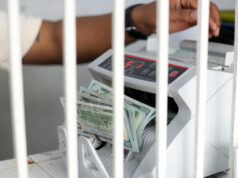Nearly half of PHL Gen Zs, Millennials consider themselves ‘financially insecure’

THE proportion of Philippine Gen Zs and Millennials who consider themselves financially insecure jumped sharply to nearly half in both cohorts, Deloitte Philippines said, citing the results of a study.
Both generations named the cost of living as their top concern, with 48% of GenZs — those born between 1995 and 2012 and 46% of Millennials — those born between 1980 and 1994 — classifying themselves as financially insecure — up from 30% and 32%, respectively, a year earlier.
Cost of living has been the top concern for both age groups for four consecutive years.
“Most Gen Zs and Millennials started their careers while dealing with a global pandemic and financial crisis, greatly impacting the way they view work and success,” Rukhsana Pervez, human capital leader at Deloitte Philippines, said in a statement.
Some 66% of Gen Zs and 55% of Millennials said they live paycheck to paycheck, while 34% in both generations struggle to pay their living expenses.
The respondents also raised concerns over their long-term financial future, with 41% of Gen Zs and 44% of Millennials concerned about their ability to retire comfortably.
Meanwhile, 31% of Gen Zs and 17% of Millennials said they plan to change careers or companies in the next two years.
They noted that meaningful work and mental well-being are also among the factors influencing their decisions.
Both generations identified finances as their top stressor, with 35% of Gen Zs and 33% of Millennials citing jobs as their main source of stress.
“Financial security is only one piece of the puzzle when it comes to a person’s happiness and job satisfaction, but it is foundational,” the study concluded. “Without financial security, Gen Zs and Millennials struggle to focus on other priorities within their lives and careers, such as meaningful work, flexibility, and work-life balance.”
Deloitte surveyed 23,000 participants across 44 countries, including 419 from the Philippines. — Katherine K. Chan



